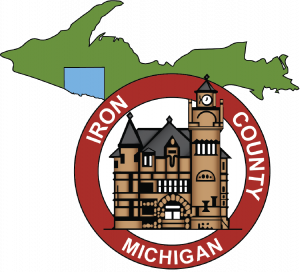Friend of Court’s Office
Address
2 South Sixth Street, Suite 19
Crystal Falls, MI 49920
Telephone
Facsimile
DEPARTMENT EMPLOYEES
Friend of the Court
Shawn Houle
Caseworker
Emily Clancy
Paternity Specialist
Kimbery Hahn
PUBLIC NOTICE
ANNUAL REVIEW OF PERFORMANCE RECORD OF THE FRIEND OF THE COURT
Pursuant to Michigan law, the Chief Circuit Judge annually reviews the performance record of the Friend of the Court.
This review is limited by law to the following criteria: whether the friend of the court is guilty of misconduct, neglect of statutory duty, or failure to carry out the written orders of the court relative to a statutory duty; whether the purposes of the Friend of the Court Act are being met;
and whether the duties of the Friend of the Court are being carried out in a manner that reflects the needs of the community.
Members of the public may submit written comments to the Chief Circuit Court Judge relating to these criteria. Send your written comments, with your name and address, to:
Hon. Mary B. Barglind, Chief Circuit Court Judge, 41st Judicial Circuit
705 S. Stephenson St
PO Box 609
Iron Mountain, MI 49801
Established
Michigan law created the Friend of the Court system in 1919. At least one friend of the court office serves each circuit court’s family division. The Friend of the Court was established to “protect dependent minor children and to compel enforcement of chancery decrees where there are minor children in divorce cases, who are liable to become public charges and are not properly cared for by their custodians, and to enforce the payment of amounts decreed them in a court of chancery, and to enforce all interlocutory and decretal orders.”

History
The office of the Friend of the Court was created in 1919 as part of the family division of the circuit court. The Friend of the Court serves as the “eyes and ears” of the circuit court family division judges. The office provides assistance to the court in matters that the court cannot exercise personal supervision over, and furnishes the court with recommendations related to domestic relations matters such as custody, parenting time and support. The person who makes the ultimate decision in any domestic relations action is the circuit court judge or family division judge to whom the case is assigned. Just as the role and function of the court has changed over the years, the office of the Friend of the Court has evolved considerably during its history based upon changes in statute, court rule and public policy.
Between 1919 and 1982 there were only eight amendments made to the Friend of the Court Act.
In 1982 after many years of public hearings, investigations, and studies by the Legislative Commission on the Courts, the Michigan Women’s Commission, and the Michigan Legislature, the Legislature enacted major changes to the Friend of the Court Act. The changes provided greater uniformity and better accountability in the provision of the Friend of the Court services. The overall goal of the changes was to increase the quality of services for litigants.
Functions
The office of the Friend of the Court has the responsibility for providing specific services to the public, which it assists:
Enforcement: The office of the Friend of the Court, as a division of the Circuit Court, focuses upon enforcement of child support in domestic relations cases on behalf of minor children. The office of the Friend of the Court is responsible for enforcing the orders of the family division of the Circuit Court and delivering services related to divorce, paternity actions, family support action and interstate actions.
Investigation: The Friend of the Court is the investigative and enforcement entity of the family division of the Circuit Court with respect to child custody, parenting time and child support. The Friend of the Court provides written reports and recommendations to the Court regarding custody, parenting time and family support issues. The Friend of the Court does not have the authority to investigate abuse or neglect. Abuse or neglect should be reported to Child Protective Services, a special unit within the Department of Health & Human Services (M.D.H.H.S), in the county where the custodial parent and child(ren) live.
Dispute Resolution: The office of the Friend of the Court provides, both formally and informally, alternative dispute resolution through mediation.
The Friend of the Court’s office is the only entity that provides ongoing case management in domestic relations actions and assists parties to those actions in receiving access to the judicial system.
The Friend of the Court’s office CANNOT provide legal advice.
